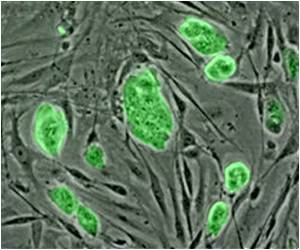
"Our data shows that SIRT1 is a protein that is required to maintain the health of blood stem cells and supports the possibility that reduced function of this protein with age may compromise healthy aging," says Saghi Ghaffari, MD, PhD, Associate Professor of Developmental and Regenerative Biology at Mount Sinai's Black Family Stem Cell Institute, Icahn School of Medicine. "Further studies in the laboratory could improve are understanding between aging stem cells and disease."
Next for the team, which includes Pauline Rimmelé, PhD, is to investigate whether or not increasing SIRT1 levels in blood stem cells protects them from unhealthy aging or rejuvenates old blood stem cells. The investigators also plan to look at whether SIRT1 therapy could treat diseases already linked to aging, faulty blood stem cells.
They also believe that SIRT1 might be important to maintaining the health of other types of stem cells in the body, which may be linked to overall aging.
The notion that SIRT1 is a powerful regulator of aging has been highly debated, but its connection to the health of blood stem cells "is now clear," says Dr. Ghaffari. "Identifying regulators of stem cell aging is of major significance for public health because of their potential power to promote healthy aging and provide targets to combat diseases of aging," Dr. Ghaffari says.
Source-Eurekalert















